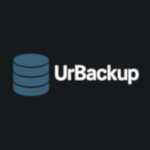ntopng CE: Realtime Network Traffic, Plain and Visible
When bandwidth spikes or strange IPs show up in logs, and you’re tired of staring at raw NetFlow dumps or graphs with zero context — ntopng makes things make sense.
This tool shows traffic in real time, breaks it down by host, port, protocol, and geography, and runs fully in the browser. The Community Edition doesn’t have all the bells and whistles, but for visibility into who’s doing what on your network — it’s more than enough.
What ntopng CE Gives You
| Feature | Why It’s Useful |
| Live traffic view | Watch flows, ports, and hosts as they happen |
| Host tracking | See who’s talking to whom — internal and external |
| Application-level detection | Identifies traffic by service (even over non-standard ports) |
| Geolocation integration | Flags IPs by country — handy for spotting outliers |
| Alerts and thresholds | Bandwidth or flow-based rules for unusual behavior |
| Lightweight web UI | No extra software — access everything via browser |
| Flow export (NetFlow/sFlow) | Can be fed by routers, firewalls, or mirror ports |
| Historical stats | Keeps short-term history — good for “what happened this morning?” |
Deployment Snapshot
– Runs on: Linux, FreeBSD, macOS, Raspberry Pi
– Data sources: NetFlow, sFlow, ZMQ, native interface capture
– UI: Web dashboard (port 3000 by default)
– Resource usage: Light enough for single-board devices, scales up too
– Database: Uses Redis for working memory, optional for persistence
– License: Community Edition is free and open source (GPLv3)
It’s fast to deploy, doesn’t need a heavy backend stack, and once set up, works quietly until something odd happens.
Quick Setup (Ubuntu/Debian)
Install and launch:
sudo apt install ntopng
sudo systemctl enable ntopng
sudo systemctl start ntopng
Then open:
http://<your-ip>:3000
Default credentials are:
– User: admin
– Password: admin
You’ll want to change that immediately.
Where ntopng CE Makes Sense
– You need to track what machines are doing on a small-to-medium LAN
– Logs are full of IPs and you want actual context
– You suspect something weird is going on, but SNMP graphs aren’t helping
– You want to quickly see top talkers, protocols, or countries
– You prefer something you can install and forget — until it’s needed
Strong Points and Limitations
What works great:
– Fast, simple install — no tuning needed out of the gate
– Gives useful visibility in a matter of minutes
– Visual layout is clean — even on mobile or low-res screens
– Supports a mix of direct capture and NetFlow input
– Good for home labs, edge networks, or internal segments
What’s missing in CE:
– No long-term history or timeseries storage beyond a few hours
– No advanced threat detection — that’s in the Pro edition
– Traffic shaping, DNS visibility, and LDAP auth are paid-only
– Alerting is basic — just threshold-based
– Doesn’t replace a full SIEM or NMS, but complements them well
Final Words
ntopng CE won’t solve all your problems, and it’s not meant to. But if you want a lightweight, browser-based tool to show you what’s flowing through your network right now — without buying a license or learning SNMP OIDs — this is one of the best places to start.






